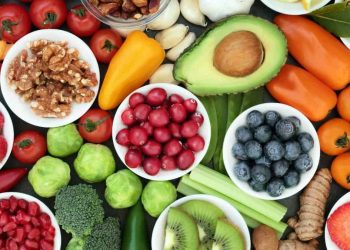According to recent studies, maintaining a healthy diet could influence preventing pregnancy from ending earlier than normal. We explain what foods are recommended
A normal pregnancy usually lasts between 37 and 42 weeks, and if it reaches term between week 21 and 37 of gestation, it is considered premature. According to estimates by the WHO (World Health Organization), each year some 15 million premature babies are born in the world, and the number, he warns, is increasing.

Also in our country. In fact, Ariana Serrano, associate doctor of the Dexeus Maternal-Fetal Medicine Section, points out that this is one of the main causes of morbidity and mortality in babies. And although numerous investigations have been made, specific treatment has not yet been found.
However, a recent study by the University of Queensland, in Australia, has again pointed to what researchers from Sweden, Iceland and Norway have pointed out in the British Medical Journal six years ago. And is that a healthy diet could help prevent premature delivery.
What are the causes of a pregnancy ending earlier than normal?
As the doctor explains, the patient’s clinical history is first studied, since having had a previous premature birth is considered a risk factor. Other causes can be:
- Multiple pregnancies: A malformation or intervention in the cervix. A fibroid, a uterine malformation … And this is evaluated by measuring the cervix. A vaginal ultrasound is performed at week 20 of pregnancy and the length of the cervix is measured. If you measure less than 25 millimetres you are at risk of premature delivery, and what you do is give it a treatment to prevent the neck from shortening further.
- Vaginal infection: Once the risk of premature pregnancy has been detected, its follow-up will be carried out in a specialized high-risk unit to carry out the appropriate controls, and when giving birth, do so in a hospital that has a neonatal ICU, where to serve the little one in the best possible way.
A healthy diet, essential during pregnancy
Although doctors stress that maintaining a healthy diet throughout pregnancy is essential, as revealed by these studies, it could play as important a role as reducing the risk of premature labor. The researchers revealed that pregnant women who maintained a ‘poor diet’ (that is, devoid of fruits and vegetables and high in fats and sugars) have a 50% higher risk of having a premature pregnancy than those who regularly consume vegetables and proteins. But what is the reason?
Ariana Serrano details that “it has been seen that preterm labor may be favoured by an increase in interleukins and inflammatory substances, which activate an inflammation of the amniotic membranes, that is, of the pouch. And such inflammation can sometimes be chronic, leading to premature delivery. “
For this reason, the doctor states that antioxidant and anti-inflammatory foods have been observed to help prevent premature pregnancy. But he insists that this does not mean that this will be avoided. In addition to the usual recommendations, such as not consuming alcohol or tobacco, it indicates a series of foods that can help prevent it:
- Leafy green vegetables, such as spinach, Swiss chard, or watercress, which are also rich in folic acid (which significantly reduces the risk of a baby having neural tube defects ).
- Whole grain cereals, which are a source of carbohydrates and fibre.
- Drink plenty of water.
- Fish rich in Omega 3, such as salmon or anchovy. Omega 3, especially DHA is essential during pregnancy since it contributes to the normal development of the fetus’ brain.
- Nuts, such as walnuts or almonds, which are not only high in folic acid but provide essential fatty acids such as omega 3.
- Avocado. It is not only fashionable fruit, but it has multiple health benefits. In this case, it is interesting because it is a fruit rich in antioxidants and healthy fats.
- Vitamin D. An essential vitamin for our body, especially during pregnancy. Several studies suggest that they help prevent complications in pregnancy, and Dr. Serrano confirms this. So much so that “all vitamin complexes for pregnant women contain it.” Although it can be obtained through fish such as salmon or sardines and dairy products, it is also advisable to sunbathe for about 15 minutes without sun protection, so that it absorbs vitamin D, and then take the protection.
- Probiotic diet to improve flora. Since premature labor has sometimes been caused by some vaginal infection, it infects the membranes and an infection occurs.
The doctor comments that there are some studies in progress on the recommendation to supplement probiotics during pregnancy. Foods like kefir or sourdough bread are some natural probiotics . - Do not consume processed, added sugars and saturated fats. The doctor recommends it as a guideline to be followed not only by pregnant women but by the entire population.
- Perform low impact exercises. “Absolute rest has not been shown to reduce the risk of premature pregnancy, but it is common sense to think that a patient reduces the intensity of exercise,” says Dr Serrano.
However, the doctor explains that “when there is already a threat of real premature labor, tocolytic treatments are carried out to stop contractions, but in many cases, they do not work because labor has already begun.” As soon as the pregnant woman is admitted to the hospital, she is given doses of corticosteroids (by injection) so that the baby’s lungs mature, since if they are born before 34 weeks, they lack surfactant, a substance that contributes to filling the lungs air and prevents the alveoli from collapsing.










